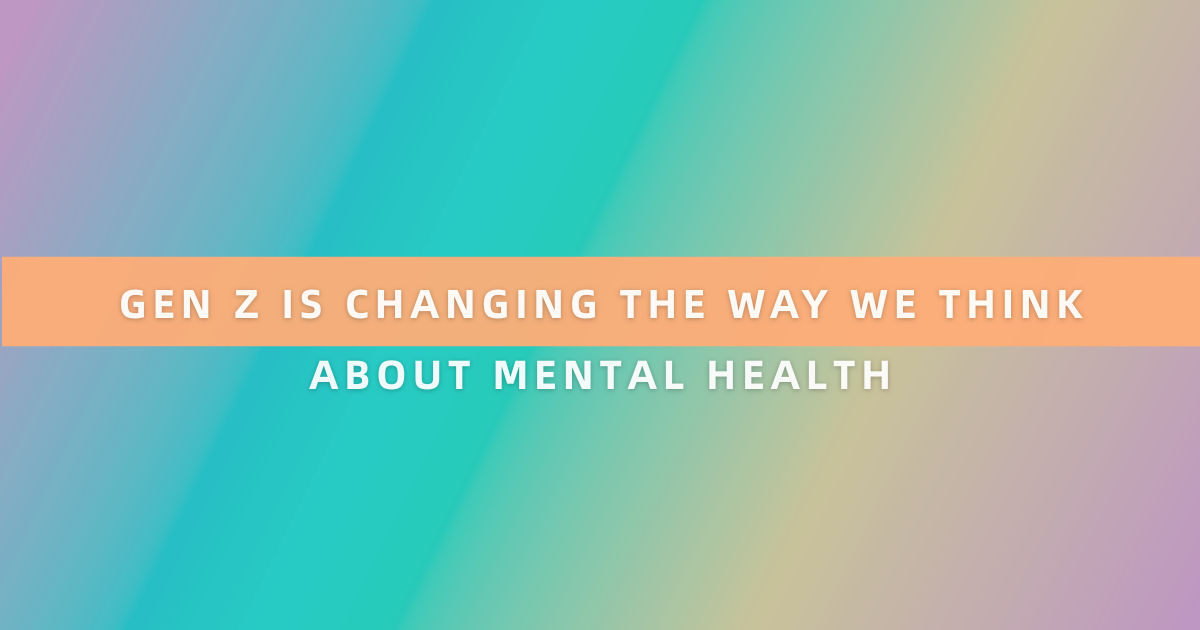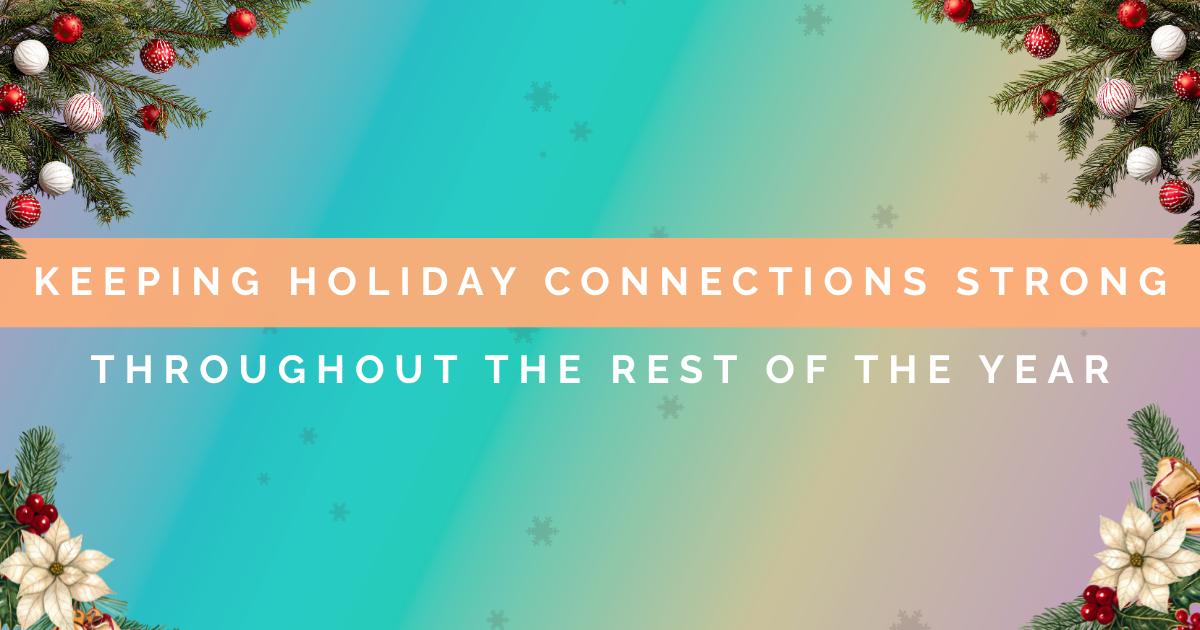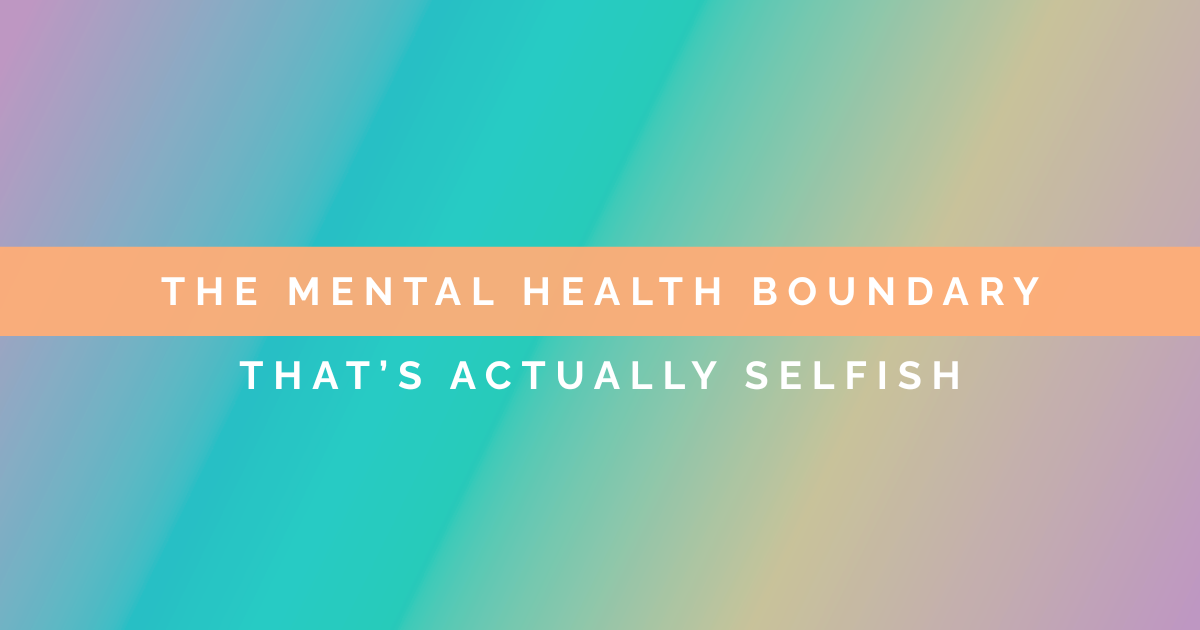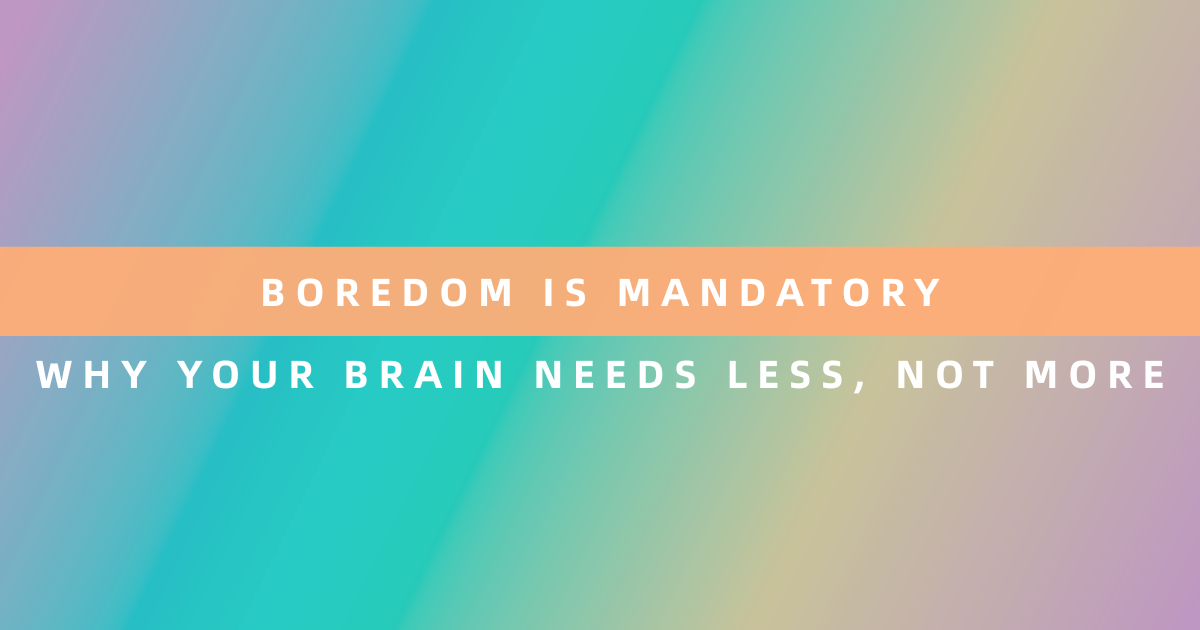For Gen Z, mental health is not a hidden subject or an uncomfortable pause in conversation. It is part of everyday talk. A friend can casually mention a therapy session in the same way someone else mentions a dentist appointment, and no one blinks. This openness is striking when compared with older generations, many of whom avoided such conversations or spoke of them only in whispers.
Data support this shift. Nearly half of Gen Z adults (about 46 percent) have received a mental health diagnosis, most often related to anxiety or depression [1]. Despite these challenges, they are far less hesitant to share. The APA’s Stress in America report shows that 27 percent of Gen Z said their mental health was fair or poor. Among Baby Boomers, the number was 22 percent, and for Gen X, it was 13 percent. The report also found that 37 percent of Gen Z had gone to therapy, compared to 22 percent of Boomers [2]. In other words, they are not just experiencing mental health struggles—they are naming them, and that matters.
The reason behind this openness lies in their upbringing. Gen Z came of age during a time marked by turbulence: the financial crisis of 2008, the constant threat of school shootings, growing awareness of social inequalities, and later, the upheaval of a global pandemic. These events shaped a generation that does not view anxiety, burnout, or depression as personal weakness. Instead, they see these struggles as part of the human condition, something that can be acknowledged and treated rather than hidden away.
Unlike the “tough it out” mindset that defined older generations, Gen Z views mental health care as practical maintenance. Just as you would not wait for a toothache to visit the dentist, they do not wait for a breakdown to seek therapy. They search for symptoms, consult professionals, and adopt daily practices that support mental well-being. This cultural shift is not only changing how individuals cope but also forcing schools, workplaces, and healthcare systems to keep pace with a generation that expects mental health to be taken seriously.
How Gen Z Learned to Talk About Mental Health Differently
Gen Z grew up in a world where silence around mental health was already beginning to break. Campaigns in schools, conversations on TV, and resources online were everywhere by the time they entered adolescence. For them, terms like “anxiety” or “depression” were not taboo; they were part of the vocabulary of growing up [3].
Social media amplified this shift. Scrolling through TikTok or Instagram meant seeing strangers admit to panic attacks, describe therapy sessions, or explain what living with ADHD feels like. Those posts weren’t just stories; they were lessons. They taught young people that they weren’t alone, that struggling didn’t mean something was wrong with them, and that talking openly could bring relief.
Education added another layer. Many schools introduced lessons about emotional well-being alongside physical health, giving students a chance to see mental health as medical, not moral. It wasn’t about being “weak” or “lazy.” It was about the brain, stress, and human limits. That simple reframing set the stage for more compassionate conversations.
Another piece of this puzzle came from celebrities and influencers. When people with huge followings admitted they went to therapy, it carried weight. Instead of viewing therapy as a last resort, many young people began to see it as self-care.
And then there are the communities Gen Z built for themselves. In group chats, online forums, or local meet-ups, they created safe spaces to trade coping strategies, vent about hard days, and reassure each other that it was okay not to be OK. This peer support didn’t replace professional help, but it softened the isolation that often comes with mental struggles.
The language reflects their comfort. They don’t just say they are “stressed.” They talk about being “triggered,” about needing “boundaries,” about noticing a “trauma response.” Words that once belonged in clinical circles now move easily in daily conversation.
What also stands out is their awareness of context. They don’t treat mental health as something that exists in a vacuum. They connect it to race, gender identity, money problems, and social pressures. This intersectional lens makes their conversations broader, more inclusive, and more real.
And maybe most importantly, Gen Z doesn’t just talk. They call out harmful stereotypes, challenge stigmas, and create content that educates others. For them, speaking up about mental health isn’t just self-expression. It’s activism.
What Gen Z Expects From Workplaces Regarding Mental Health
For Gen Z, mental health support at work is not an extra benefit. It is a basic expectation. This generation looks for employers who treat well-being with the same seriousness as performance and who back up their promises with real policies, not just slogans.
One of their strongest demands is access to meaningful mental health benefits. Nearly one in three (32%) Gen Z employees expect their workplace to provide free support such as wellness apps, mental health days [4], or quiet spaces to decompress. And it’s not just “nice to have.” A significant 61% say they would seriously consider leaving a job if another employer offered stronger mental health benefits [5]. In their view, these are not perks. They are essential resources.
Work-life balance carries just as much weight. Many Gen Z employees are willing to accept lower pay in exchange for healthier boundaries. Surveys show that sixty-two percent would trade salary for a better balance between work and life [6]. Flexibility in hours, hybrid arrangements, and time for therapy appointments are part of that, but so are firm limits. Gen Z makes it clear that unpaid overtime, after-hours phone calls, and constant pressure to respond to emails outside working hours are not acceptable.
The way sick leave is used has also changed. Younger workers increasingly take time off for mental and emotional recovery, not just for physical illness. This reflects a growing recognition that rest is necessary to prevent burnout and maintain performance.
Culture, however, may matter even more than policies. Gen Z wants to feel safe talking about mental health at work, yet only about half feel comfortable bringing concerns to their managers. This gap shows how important it is for leaders to create trust, model healthy behavior, and normalize conversations about well-being.
Practical access is another concern. Gen Z expects resources to be simple to find and easy to use. If support systems are buried in corporate portals or tied up in red tape, they will be ignored. This generation values efficiency, transparency, and straightforward access to help.
Gen Z wants to work for organizations that respect boundaries, care for people as whole individuals, and align with their values. Almost every Gen Z says purpose matters at work. When employers ignore this, they risk not just turnover but disengagement from the people who will soon make up the largest share of the workforce.
How Social Media Became a Mental Health Awareness Tool
While social media is often criticized for its negative impact on mental health, Gen Z has also transformed these platforms into powerful tools for mental health education, support, and advocacy.
Educational content proliferates on platforms like TikTok and Instagram, where mental health professionals, advocates, and individuals with lived experience share information about symptoms, treatments, and coping strategies. This content has democratized mental health education and made professional knowledge accessible to millions of young people.
Personal storytelling has become a powerful form of mental health advocacy, with Gen Z users sharing their own experiences with depression, anxiety, eating disorders, and other conditions. These personal narratives help others feel less alone and provide realistic portrayals of mental health challenges and recovery.
Crisis intervention happens informally through social media when Gen Z users recognize concerning posts and reach out to support struggling peers. Many platforms have also implemented features that allow users to report concerning content and connect people with professional resources.
Community building occurs through hashtags, groups, and communities focused on specific mental health conditions or experiences. These spaces provide ongoing support, shared resources, and validation for people dealing with similar challenges.
Destigmatization campaigns leverage social media’s reach to challenge negative stereotypes about mental health conditions. Gen Z users create content that shows the reality of living with mental health conditions, dispelling myths and promoting understanding.
Resource sharing happens continuously as Gen Z users share information about therapists, mental health apps, coping techniques, and local resources. This peer-to-peer resource sharing has created informal support networks that complement professional mental health services.
Advocacy and activism use social media platforms to push for policy changes, increased funding for mental health services, and better representation of mental health issues in media and education.
Real-time support provides immediate encouragement and coping strategies when people are struggling, creating a form of peer support that’s available 24/7 and doesn’t require formal appointments or referrals.
Why Gen Z Views Therapy as Self-Care Rather Than Crisis Intervention
Gen Z’s relationship with therapy represents a fundamental shift from previous generations’ approach to mental health treatment. Rather than viewing therapy as something you pursue only during crises, Gen Z treats therapy as a proactive form of self-care and personal development.
Preventive approach characterizes Gen Z’s relationship with therapy. They often begin therapy not because they’re in crisis, but because they want to develop better coping skills, understand themselves better, or work through minor issues before they become major problems.
Personal growth focus drives many Gen Z therapy experiences. They view therapy as a tool for self-improvement, relationship enhancement, and achieving personal goals rather than just addressing mental health symptoms.
The maintenance mindset treats therapy like other forms of health maintenance. Just as they might see a dentist for regular cleanings or a doctor for annual checkups, Gen Z views therapy as ongoing maintenance for their mental health.
Accessibility expectations reflect Gen Z’s demand for therapy services that fit their lifestyles and preferences. They expect options like online therapy, text-based counseling, and flexible scheduling that accommodate their needs.
Therapy shopping is common among Gen Z, who often try multiple therapists to find the right fit. They approach therapy with a consumer mindset, expecting to find providers who understand their specific needs and communication styles.
Integration with daily life means that Gen Z incorporates therapy insights and techniques into their regular routines. They share therapy homework with friends, practice mindfulness techniques publicly, and apply therapeutic concepts to their relationships and work life.
Normalization efforts include Gen Z’s tendency to discuss their therapy experiences openly, recommend therapists to friends, and treat therapy appointments like any other healthcare appointment.
Specialized preferences reflect Gen Z’s awareness of different therapy approaches and their expectations for finding therapists who specialize in their specific concerns, whether that’s anxiety, relationship issues, trauma, or identity exploration.
What Older Generations Can Learn From Gen Z’s Mental Health Approach
Gen Z’s approach to mental health offers valuable lessons for older generations who may have grown up with different attitudes toward psychological well-being and professional help.
Destigmatization benefits everyone when mental health conversations become normalized. Older generations can learn from Gen Z’s comfort with discussing mental health openly, which often leads to earlier intervention and better outcomes.
Proactive care represents a shift from reactive mental health approaches to preventive ones. Older generations can benefit from Gen Z’s model of addressing mental health needs before they become crises, potentially avoiding more serious problems down the road.
Boundary-setting skills that Gen Z has developed around mental health can benefit older generations who may have learned to prioritize others’ needs over their own well-being. Learning to set healthy boundaries can improve mental health across age groups.
Professional help acceptance is an area where older generations can learn from Gen Z’s comfort with seeking therapy and other mental health services. Overcoming stigma around professional help can significantly improve quality of life.
Workplace advocacy demonstrates how individuals can push for better mental health support in their organizations. Older generations can learn from Gen Z’s willingness to advocate for their mental health needs in professional settings.
Self-awareness practices that Gen Z has developed through therapy culture and mental health education can benefit older generations who may have had fewer opportunities to develop emotional intelligence and self-reflection skills.
Communication skills around mental health that Gen Z has developed can improve relationships across generations. Learning to discuss mental health openly and supportively can strengthen family bonds and friendships.
Technology integration for mental health support can benefit older generations who may be less familiar with mental health apps, online therapy, and other digital resources that can supplement traditional treatment approaches.
How Gen Z’s Mental Health Advocacy Is Changing Policies
Gen Z’s advocacy for mental health support is driving significant policy changes in educational institutions, workplaces, and healthcare systems across the country.
Educational policy changes include increased funding for campus mental health services, mandatory mental health education in schools, and policies that allow mental health days for students. Gen Z’s advocacy has highlighted the connection between mental health and academic success.
Workplace policy evolution reflects Gen Z’s expectations for mental health support in professional settings. Companies are implementing mental health days, expanding Employee Assistance Programs, and creating more psychologically safe work environments in response to Gen Z demands.
Healthcare system improvements include increased coverage for mental health services, expanded access to therapy, and integration of mental health care with primary care. Gen Z’s advocacy has emphasized the importance of mental health parity in healthcare coverage.
Legislative advocacy by Gen Z has supported bills that increase mental health funding, improve access to services, and protect people with mental health conditions from discrimination. Their political engagement has made mental health a mainstream policy issue.
Corporate responsibility has expanded to include mental health as companies respond to Gen Z’s expectations for employer support. This includes everything from mental health benefits to workplace culture changes that prioritize employee well-being.
Technology regulation reflects Gen Z’s awareness of social media’s impact on mental health. Their advocacy has supported policies that address cyberbullying, promote digital wellness, and require social media companies to consider mental health in their design decisions.
Insurance reform has been influenced by Gen Z’s advocacy for better mental health coverage, including therapy access, medication coverage, and the elimination of barriers to mental health treatment.
Crisis intervention policies have evolved to include more comprehensive support systems, partly in response to Gen Z’s advocacy for better crisis resources and suicide prevention programs.
The Future of Mental Health Culture in a Gen Z World
As Gen Z continues to influence social norms and institutional policies, their approach to mental health will likely shape the future of how society addresses psychological well-being.
Workplace transformation will continue as Gen Z advances in their careers and takes on leadership roles. Future workplaces will likely prioritize mental health support as a core business function rather than an optional benefit.
Healthcare integration will evolve to seamlessly combine mental and physical health care, reflecting Gen Z’s understanding that psychological well-being is inseparable from overall health.
Educational evolution will incorporate comprehensive mental health education from early childhood through higher education, ensuring that future generations have even better tools for understanding and managing their mental health.
Technology advancement will continue to improve access to mental health resources, with AI-powered tools, virtual reality therapy, and personalized mental health apps becoming more sophisticated and widely available.
Policy standardization may lead to universal mental health policies that ensure consistent support across different institutions and geographic areas, reflecting Gen Z’s expectation that mental health support should be universally accessible.
Stigma elimination will likely accelerate as Gen Z’s approach to mental health becomes the dominant cultural norm, making it easier for people of all ages to seek help and discuss mental health openly.
Preventive focus will shift mental health care from crisis intervention to prevention and maintenance, potentially reducing the overall burden of mental health conditions on individuals and society.
Personalized approaches will become more common as mental health care adapts to individual needs, preferences, and circumstances rather than using one-size-fits-all treatment approaches.
As Gen Z continues to mature and influence institutions, their mental health advocacy will likely create lasting changes that benefit all generations. Their approach demonstrates that mental health support is not just a personal responsibility but a societal imperative that requires systemic changes to be addressed effectively.
Ready to embrace Gen Z’s approach to mental health by making therapy and self-care a regular part of your life? Explore Theryo’s AI-enhanced mental health platform that offers the kind of accessible, personalized support that Gen Z expects.
Frequently Asked Questions
1. What makes Gen Z’s approach to mental health different from previous generations?
Gen Z views mental health as a normal part of overall health, discusses it openly without shame, seeks therapy proactively rather than only during crises, and expects comprehensive mental health support from employers and institutions. They treat mental health maintenance like physical health maintenance.
2. How has social media influenced Gen Z’s mental health attitudes?
Social media has provided Gen Z with access to mental health education, personal stories that normalize struggles, peer support networks, and advocacy platforms. While social media can negatively impact mental health, Gen Z has also used it to destigmatize mental health conversations and share resources.
3. What do Gen Z employees expect from employers regarding mental health?
Gen Z expects mental health days, flexible work arrangements, comprehensive mental health benefits, psychologically safe work environments, managers trained in mental health awareness, and work-life balance policies that protect employee well-being.
4. Why does Gen Z view therapy as self-care rather than crisis intervention?
Gen Z approaches therapy as preventive care and personal development rather than waiting for mental health crises. They view therapy as a tool for growth, relationship improvement, and maintaining mental wellness, similar to how they might approach physical fitness or nutrition.
5. How can older generations learn from Gen Z’s mental health approach?
Older generations can benefit from Gen Z’s openness about mental health, their proactive approach to seeking help, their boundary-setting skills, their comfort with professional mental health support, and their advocacy for workplace mental health policies.
6. What challenges come with Gen Z’s approach to mental health? Some concerns include potential over-pathologizing of normal emotions, self-diagnosis through social media, therapy becoming trendy rather than therapeutic, and the risk of mental health conversations losing their clinical accuracy when they become too casual.
7. How is Gen Z changing workplace mental health policies?
Gen Z’s expectations are driving companies to implement mental health days, expand Employee Assistance Programs, provide mental health training for managers, create more flexible work arrangements, and prioritize psychological safety in workplace culture.
8. What role does technology play in Gen Z’s mental health approach? Technology provides Gen Z with access to mental health apps, online therapy, digital support communities, educational resources, and tools for tracking their mental health. They expect mental health support to be as accessible and convenient as other digital services.
9. How has Gen Z’s advocacy influenced mental health policies? Gen Z advocacy has contributed to increased funding for mental health services, expanded access to therapy, improved mental health coverage in insurance plans, and policy changes in schools and workplaces that prioritize psychological well-being.
10. What will mental health culture look like as Gen Z ages into leadership roles? Future mental health culture will likely feature universal mental health support, seamless integration of mental and physical healthcare, preventive rather than reactive approaches, reduced stigma, and workplaces that prioritize employee psychological well-being as standard practice.
11. How does Gen Z’s approach to mental health affect their relationships with family and friends? Gen Z’s openness about mental health can improve family communication and friendships by normalizing discussions about emotional well-being. However, it can also create generational tensions when older family members don’t understand or support their approach to mental health.
12. What can organizations do to better support Gen Z’s mental health expectations? Organizations can implement comprehensive mental health policies, provide training for managers on mental health awareness, create psychologically safe environments, offer flexible work arrangements, expand mental health benefits, and regularly assess and improve their mental health support systems.
References
[1] https://www.harmonyhit.com/state-of-gen-z-mental-health
[2] https://www.apa.org/monitor/2019/01/gen-z
[3] https://www.weforum.org/stories/2025/06/gen-z-mental-health-unicef/
[4]https://www.deskbird.com/blog/generation-z-and-well-being







